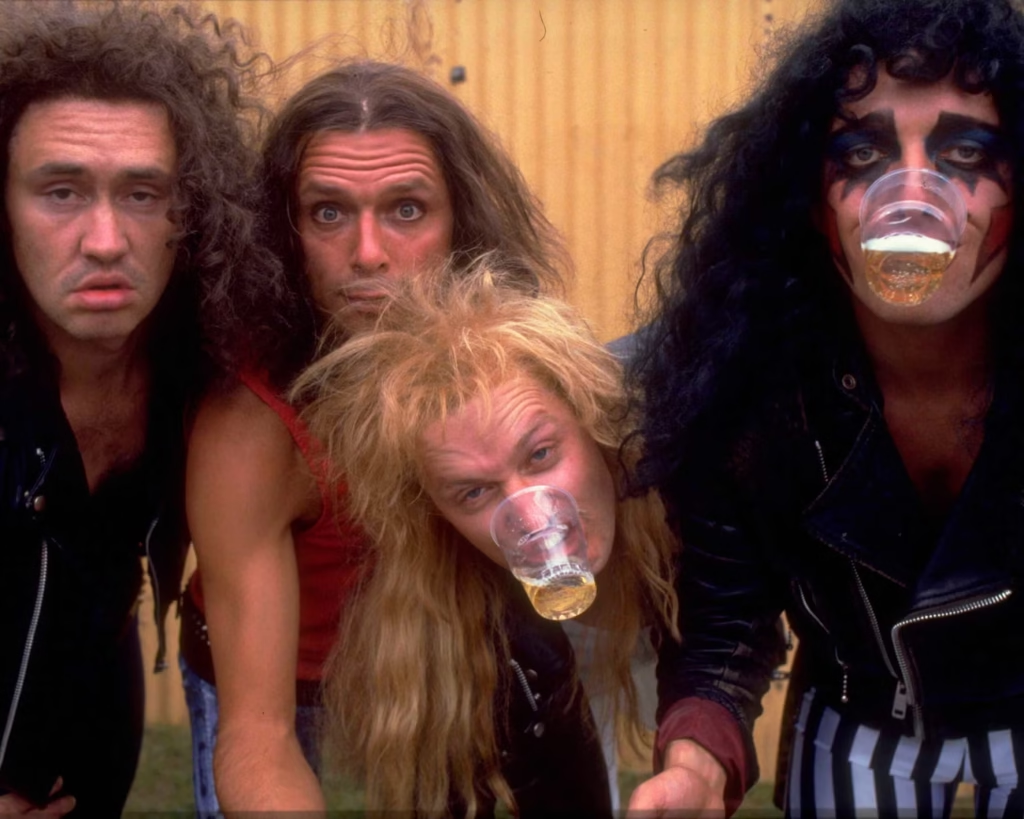Robin Williams’s legacy as a comedic trailblazer stretches well beyond his frenetic stand-up and iconic film roles. A recent feature in The Guardian revealed how the American funnyman once declared, “I’ll buy the club,” after discovering The Comic Strip cabaret in London’s Soho. This off-the-cuff promise underscores how Robin Williams helped legitimize British alternative comedy while forging bonds that would resonate on both sides of the Atlantic.
The Dawn of Alternative Comedy in London
In the late 1970s, London’s comedy scene looked almost identical to the previous generation’s nightclub acts. Traditional jokes about celebrity culture and variety-show tropes dominated the bill. A group of young British comedians, however, yearned for something bolder. Inspired by the raw energy of punk and the spontaneity of improvisation, they began experimenting outside the mainstream circuit. Among these pioneers were Rik Mayall and Adrian Edmondson, whose anarchic duos defied convention and paved the way for a new era.
The Birth of The Comic Strip Presents…
The Comic Strip officially formed in October 1980 at the Boulevard Theatre in Soho. Founding members Peter Richardson, Nigel Planer, and Jennifer Saunders, alongside Mayall and Edmondson, pooled their creative forces to produce late-night cabaret shows. The troupe blended satirical sketches with cinematic parodies, often mocking the very establishment that had overlooked them. Their sold-out shows caught the eye of critics and comedy aficionados alike, transforming The Comic Strip into a crucible for boundary-pushing humor.
Shortly after opening night, word spread that A-list celebrities were slipping into the dimly lit theatre to watch these unlikely rebels. Among them was Robin Williams, whose own innovative work in New York and Los Angeles had already earned him a reputation for fearless improvisation. In 1981, he turned up at the Revuebar under a pseudonym, determined to see firsthand what all the fuss was about.
Robin Williams’s Transatlantic Support
Williams’s arrival at The Comic Strip was not a fleeting cameo. He spent several evenings backstage, swapping routines with British performers and offering feedback on their sketches. According to eyewitnesses, he was so impressed that he approached Richardson after a particularly electric set and joked, “I’ll buy the club, mate, just to keep this magic alive.” That quip, half-serious and entirely heartfelt, mirrored the generosity he showed throughout his career—lifting up emerging talents and championing fresh perspectives.
While the anecdote might sound like Hollywood hyperbole, it had tangible effects. The Comic Strip’s producers leveraged Williams’s enthusiasm to generate publicity in American entertainment magazines. Back in Los Angeles, Variety ran a brief column noting that “Robin Williams praises British comedy rebels.” Within weeks, the Soho troupe received invitations to perform at fringe festivals in the United States. This transatlantic buzz helped pave the way for British acts to break into American television, movies, and stand-up tours throughout the 1980s and ’90s.
Cementing a Global Comedy Community
Williams’s support of The Comic Strip did more than boost ticket sales—it inspired a collaborative spirit that reshaped comedy on both continents. He invited Saunders and Planer to appear on “The Tonight Show,” exposing millions of American viewers to their off-beat humor. In turn, British audiences grew more curious about the alternative scenes in New York’s Comedy Cellar and Los Angeles’s Improv. Comic partnerships blossomed, with Mayall and Edmondson later filming episodes of Bottom in Los Angeles, while Williams cut guest spots in British radio specials.
The mutual admiration proved beneficial for everyone. Shoreditch’s alternative cabaret nights in the 1990s credited The Comic Strip founders and Robin Williams for proving that comedy could thrive outside its comfort zones. At the same time, Williams benefited from exposure to the British troupe’s fearless satire, which influenced his own stand-up sets at clubs like Caroline’s in New York. This creative cross-pollination enriched both comedy cultures and contributed to the boundary-obliterating humor audiences expect today.
The Comic Strip’s Enduring Impact
More than four decades after that fateful night, The Comic Strip’s impact remains clear. Members such as Saunders went on to create award-winning series like Absolutely Fabulous, while Edmondson and Mayall starred in cult classics that still inspire a new generation of comics. Their hunger to challenge the status quo set the template for modern sketch shows and narrative comedy, from Key & Peele in the US to Fleabag in the UK.
Behind that movement stood the tacit endorsement of a man who understood the power of risk-taking. Robin Williams recognised that when artists step outside established norms, they can create something lasting. His whimsical offer to “buy the club” symbolised both his generosity and his ability to spot raw, transformative talent.
Why Robin Williams’s Gesture Still Resonates
At first glance, Williams’s quip may seem like an amusing footnote in his storied career. In reality, it represents the kind of allyship that propels creative revolutions. As streaming platforms seek fresh, edgier content, executives now champion small, experimental comedy projects much as Williams once did. His early backing of The Comic Strip echoes in today’s support for emerging voices on YouTube, TikTok, and podcast networks.
For American writers and performers, the anecdote offers a blueprint. It shows how cross-cultural exchanges can fuel innovation, reminding artists that curiosity and collaboration often yield the richest rewards. By valuing The Comic Strip’s bold experiments, Robin Williams helped cement a global comedy ecosystem where ideas travel freely and fearless voices find eager audiences.
Conclusion
The news of Robin Williams’s playful promise to purchase The Comic Strip club has reignited interest in how one comedian’s passion can transform an entire scene. His spontaneous offer encapsulates the symbiotic relationship between American and British alternative comedy in the 1980s—a relationship that endures in the hybrid styles gracing club stages, television screens, and streaming services today. As fans celebrate his enduring legacy, they remember not only his unparalleled wit but also his unwavering support of fellow artists daring to rewrite the rules.
Read More: Mitch Garver’s Clutch Hitting Powers Mariners’ Rise

